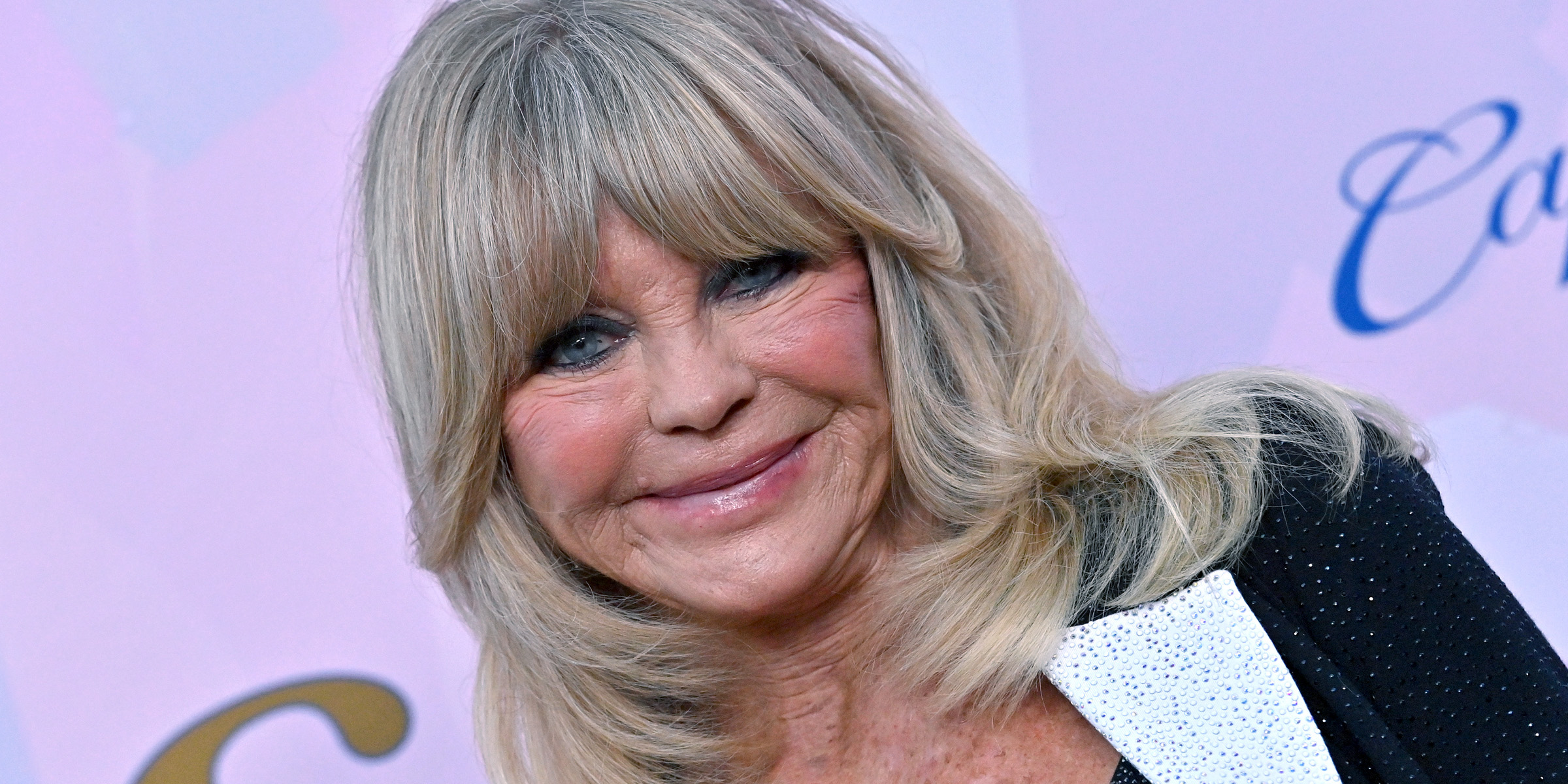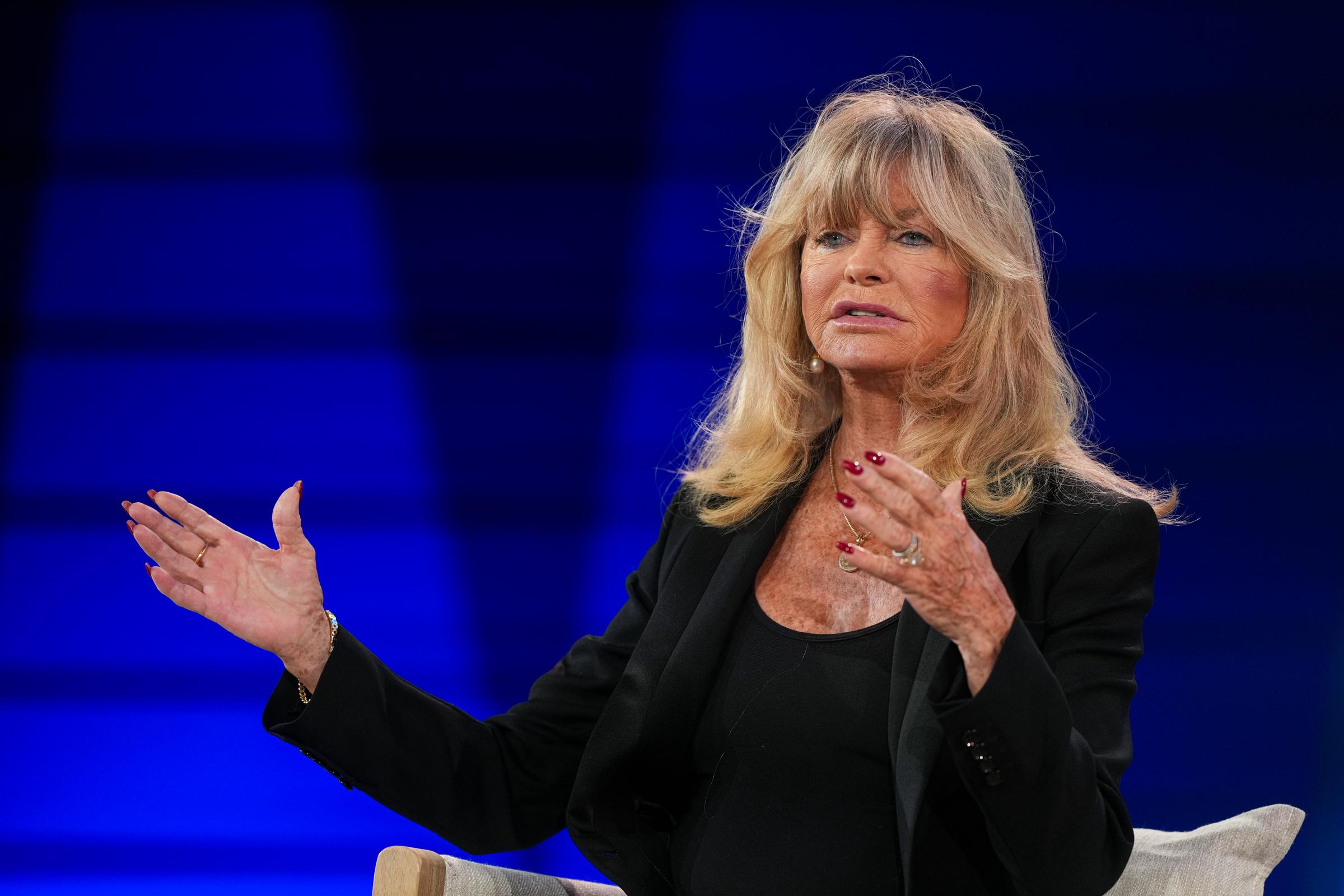Celebrity
Top 'FRIENDS' Guest Stars Who Became Big Hollywood Actors
February 13, 2026

Goldie Hawn's career spans decades, but it only takes a few standout roles to understand why she became a screen icon.
Goldie Hawn is often remembered for her infectious laugh, charm, and comedic timing. But behind the bubbly screen persona is an actress who consistently delivered memorable performances across genres.

Goldie Hawn speaks during the 2025 Concordia Summit on September 23, 2025 in New York City. | Source: Getty Images
Over a 50-year career, Hawn played roles that challenged expectations and stood out in the ever-shifting Hollywood landscape. From breakthrough performances in the late '60s to defining comedies in the '90s, these are some of the roles that made her a household name.
Hawn's breakout came with "Cactus Flower" (1969), where she starred alongside Walter Matthau and Ingrid Bergman. At just 24, she won an Academy Award for Best Supporting Actress. Her performance captured audiences, earning her widespread recognition.
Her next few roles confirmed she was more than a one-hit wonder. In "There's a Girl in My Soup" (1970), she held her own next to Peter Sellers. In "Butterflies Are Free" (1972), she brought unexpected depth to a character that could have been played as simply naïve. These performances set a tone early in her career: light on the surface, layered underneath.
By the mid-1970s, Hawn was taking on roles that allowed for more complexity. In "The Sugarland Express" (1974), she shifted from comedic charm to emotional intensity. As a desperate mother on the run, she gave one of her most dramatic performances.
"Private Benjamin" (1980) marked another career high. Playing a privileged woman who joins the Army after personal loss, Hawn earned an Oscar nomination and created a character that resonated widely. The role balanced humor with growth, something Hawn excelled at.
She continued to explore new ground in "Swing Shift" (1984), where she starred opposite Kurt Russell. The film tackled gender roles during wartime and allowed Hawn to step into more serious territory without losing her natural screen presence.
The late '80s and ’90s saw Hawn return to her comedic roots with a mix of heart and sharp humor. "Overboard" (1987) paired her with Kurt Russell in a romantic comedy that remains a fan favorite. Her performance as both an entitled heiress and a working-class mom showed off her range and perfect timing.
In "Death Becomes Her" (1992), Hawn teamed up with Meryl Streep in a dark comedy about vanity and immortality. Though the film initially received mixed reviews, it has since become a cult classic for its camp and over-the-top performances.
Finally, "The First Wives Club" (1996) cemented Hawn's place as part of a powerhouse trio. Alongside Diane Keaton and Bette Midler, she delivered a slapstick-heavy, revenge-fueled performance that resonated with audiences. It showed once again how Hawn used her physicality and comic instincts to elevate ensemble roles.